Posts Tagged ‘Thanksgiving’
Journey of Thanksgiving
Thanksgiving—a favorite American holiday that includes everyone—reminds us to take time to give gratitude and to give. Though Thanksgiving has come and gone, the base of gratitude and the reminder to give in whatever way and fashion builds a foundation that endures and can outlast political, social and even climatic turmoil.
In this space and in this holiday season, I hope readers will share stories and thoughts on this theme. Gratitude and giving are the beginning and end of a redemptive journey.
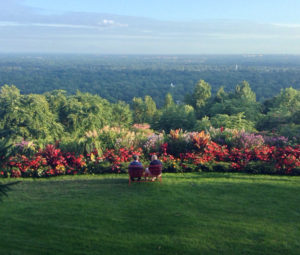
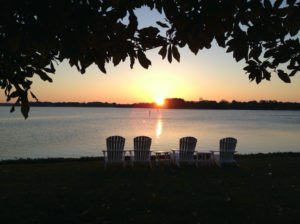
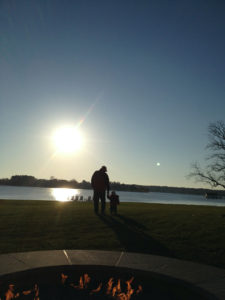
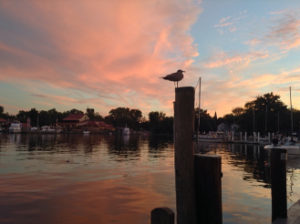
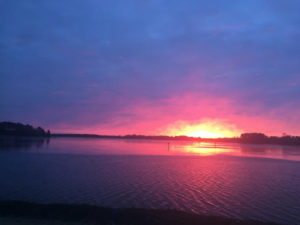
Thanksgiving: History and Healing in Troubled Times
In the U.S. Thanksgiving is a favorite holiday, a time when family and friends come together, pause in their hectic, perhaps fraught, lives to give thanks and consider their blessings. Gratitude remains a most reliable platform upon which to build the future.
My own gratitude includes my loving family. In a break with my monthly blog, I’d like to share a moving Thanksgiving essay by my son Elliot, published in The New York Times: A Thanksgiving Message in a 1963 Proclamation.
Pilgrims and the Olympics
On July 31, 1620 the Pilgrims departed from England to America.
A small community of English Protestants, unhappy with the Church of England, had earlier settled in Leiden, Holland hoping to find religious freedom. They found the freedom there, but also found they were kept out of the guilds and given menial jobs. Many of their children became attracted to the secular, more cosmopolitan life so they returned to London, where they got funding through a wealthy merchant and permission from the Virginia Company to establish a “plantation” across the Atlantic between the Chesapeake Bay and the mouth of the Hudson River. The “Separatists,” who called themselves “Saints,” joined up with a larger group they called the “Strangers.” These 102 Saints and Strangers, later known as the Pilgrims, set sail in the middle of summer on two ships headed for the New World.
However, one of the ships began to leak so both ships returned to port. All the passengers and their belongings crammed onto the remaining ship–the Mayflower–and set out again. By then it was the middle of September, the height of storm season on the Atlantic.
After two treacherous months, the Mayflower dropped anchor near the tip of Cape Cod, well north of the goal and a month later sailed across the Massachusetts Bay. By then it was the onset of a brutal New England winter, most of which the Pilgrims spent in harbor on the ship trying to survive. When spring finally arrived, only half of the passengers and half of the crew remained.
Technically, the Pilgrims had no legal right to occupy the land onto which they disembarked, a settlement they named “Plymouth” after the port from which they’d sailed. But they drafted and signed a document they called the Mayflower Compact. They promised to create a “civil Body politick” which would be governed by officials they would elect and ruled by “just and equal laws.” They promised allegiance to the king of England.
On this land they met the native population, one of whom actually spoke English, having been captured by an English sea captain and sold into slavery before he escaped to London. He and others shared supplies and taught the settlers how to survive in their harsh new land. For at least 50 years harmony and friendship existed between the Pilgrims and native Indians. This sharing and friendship is the origin of the American Thanksgiving, which is still celebrated in November each year even if subsequent history proved less admirable.
Today across the Atlantic in England the world is gathering and competing for the next two weeks in friendship in the XXX Olympic Games. Recalling a bit of history mid summer is perhaps appropriate.
The Power of Thanks
I’m up early on Thanksgiving morning before the house awakes. It is still dark outside. Our dogs—Max, a German shepherd, and Nala, a golden retriever—look up at me to see if it is really time to start the day. They know the routine. Max follows me downstairs to go outside to get the morning papers—The Washington Post dropped near the porch, The New York Times left on the sidewalk, then a trip to the kitchen to pick up dog bones before we return upstairs where I get on an exercise bike to read the papers and the dogs settle on the floor beside me to chew their bones.
But this morning I’m up too early; the papers have not yet arrived. The house, which will fill with people in a few hours for Thanksgiving dinner, is still sleeping. I love this stolen time and curl up on the sofa by the fire with a pad of paper.
This American holiday, set aside for the purpose of giving thanks, is rooted in the nation’s earliest history. It celebrates the time when the indigenous Indian population shared food with the newly arrived European settlers during their first brutal winter. Unfortunately the subsequent history between the Europeans and the Indians was not so benign, but it is this original encounter that we commemorate.
This year seems an especially important time to give thanks. When citizens in the U.S. and in countries around the world are staggered by financial downturns and fear the road ahead, it is helpful to remember the words of President Franklin D. Roosevelt who took on the U.S Presidency in the midst of the Depression in the 1930’s.
In his first Inaugural Address in 1933 Roosevelt said:
So, first of all, let me assert my firm belief that the only thing we have to fear is fear itself….In every dark hour of our national life a leadership of frankness and vigor has met with that understanding and support of the people themselves which is essential to victory…
In such a spirit on my part and on yours we face our common difficulties. They concern, thank God, only material things….Yet our distress comes from no failure of substance. We are stricken by no plague of locusts. Compared with the perils which our forefathers conquered because they believed and were not afraid, we have still much to be thankful for. Nature still offers her bounty and human efforts have multiplied it. Plenty is at our doorstep, but a generous use of it languishes in the very sight of the supply.
There is no more powerful antidote to fear than gratitude. Acknowledging the blessings at hand, especially the non-material blessings such as family, friendship and community, breaks the hold of depressive thought. The expected call to service by the incoming Obama administration is potentially as potent a rescue of national purpose and consciousness as the financial plans unfolding.
The good news is that the antidote of gratitude and service is already at hand. We don’t need the approval of Congress or an upturn in economic conditions to undertake them.
Outside now the sky is growing light. I hear the newspaper drop by the front porch. Happy Thanksgiving!